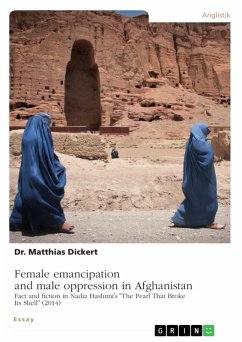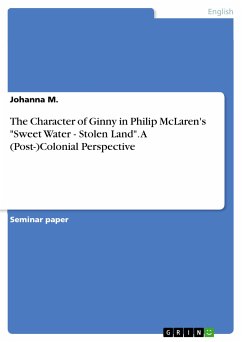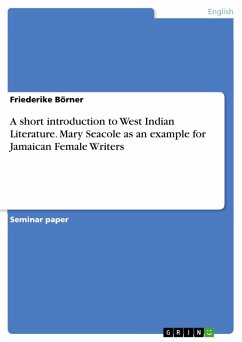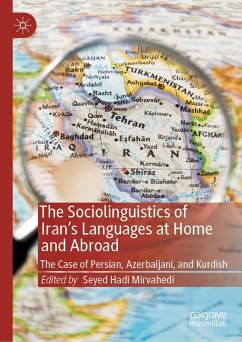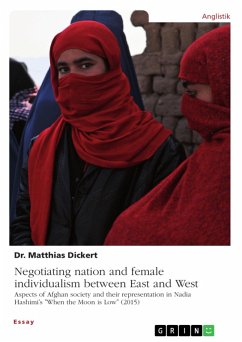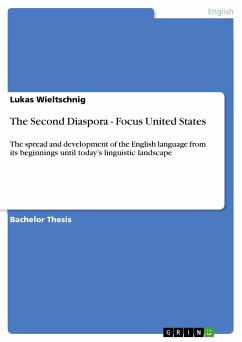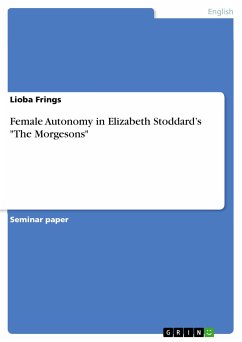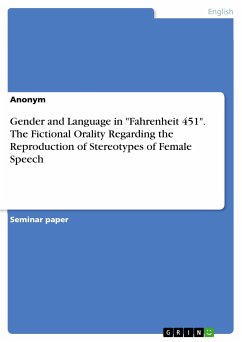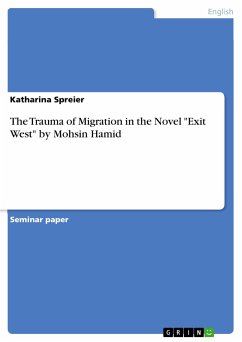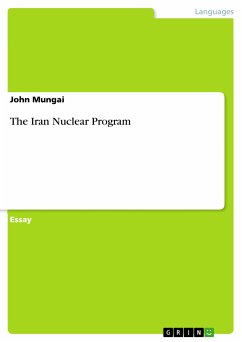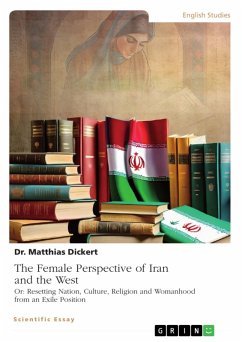
The Female Perspective of Iran and the West (eBook, PDF)
Or: Resetting Nation, Culture, Religion and Womanhood from an Exile Position
Versandkostenfrei!
Sofort per Download lieferbar
Statt: 17,95 €**
15,99 €
inkl. MwSt. und vom Verlag festgesetzt.
**Preis der gedruckten Ausgabe (Broschiertes Buch)
Alle Infos zum eBook verschenkenWeitere Ausgaben:

PAYBACK Punkte
0 °P sammeln!
Scientific Essay from the year 2024 in the subject English Language and Literature Studies - Other, , language: English, abstract: This paper concentrates on two diasporic Iranian writers and their memories in order to show how their personal experience can be understood and read as a kind of self-orientalisation and purgary of their own lives. It is these two personal stories which unfold an intensive grip on the reader while also leaving space for a generalisation of the terrible situation of the many Muslim women who have to struggle daily. For centuries East and West have been interested i...
Scientific Essay from the year 2024 in the subject English Language and Literature Studies - Other, , language: English, abstract: This paper concentrates on two diasporic Iranian writers and their memories in order to show how their personal experience can be understood and read as a kind of self-orientalisation and purgary of their own lives. It is these two personal stories which unfold an intensive grip on the reader while also leaving space for a generalisation of the terrible situation of the many Muslim women who have to struggle daily. For centuries East and West have been interested in understanding, discussing and criticising each other's religions, cultures and ways of life - both with suspicion and curiosity alike. Of special interest for both sides in past and present can be seen in matters of gender dichotomy since the West too often (above others) focused on the exclusion of female members of society from the public spheres whereas Eastern representatives heavily criticised female emancipation processes in the West which were seen as steps to destroy traditional family structures. One result from this was a stereotyped picture of Muslim women as obedient, silent or abused victims of patriarchal structures originating in an Islamic past. This picture of the female has interestingly changed over the last decades, especially in the aftermath of 9/11 when more and more female authors from the Middle East literarily speaking un-veiled and dismantled these stereotyped concepts of all female. The protests in Iran in 2022 after the death of Jina Maahsa Amini on September 16th can therefore be considered to be the preliminary highlight of this new development within Iran which so far considered itself to be the perfect Islamic state erected following the throwover of the Shah in 1979. The new group of Muslim female writers (so to speak novelists disposing of an Islamic background) at home or abroad started a new trend of hundreds of publications which included various presentations of female Muslim life of Arab, African or - as in our case - an Iranian background. Most of these novels were, however, written from an exile position, thus throwing light on female characters where past and present were interwoven from a new home. It is exactly this in-between-ness of now and then where female self-orientation and re-orienatation are placed - glued together by memory as a central element of narration.
Dieser Download kann aus rechtlichen Gründen nur mit Rechnungsadresse in A, B, BG, CY, CZ, D, DK, EW, E, FIN, F, GR, HR, H, IRL, I, LT, L, LR, M, NL, PL, P, R, S, SLO, SK ausgeliefert werden.




